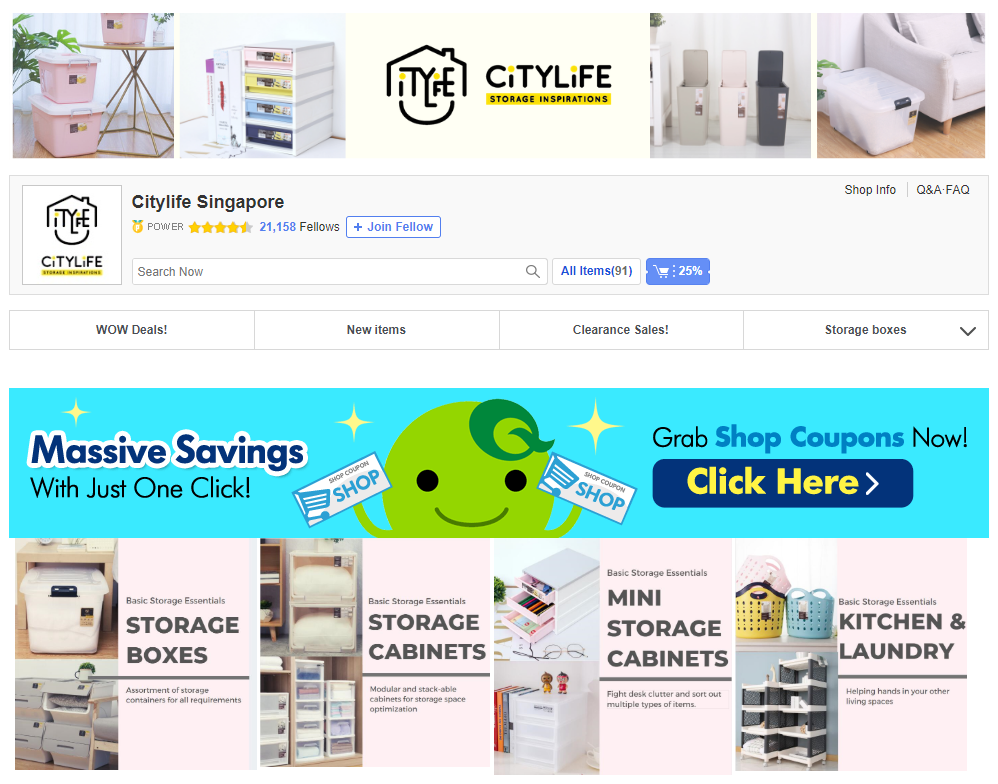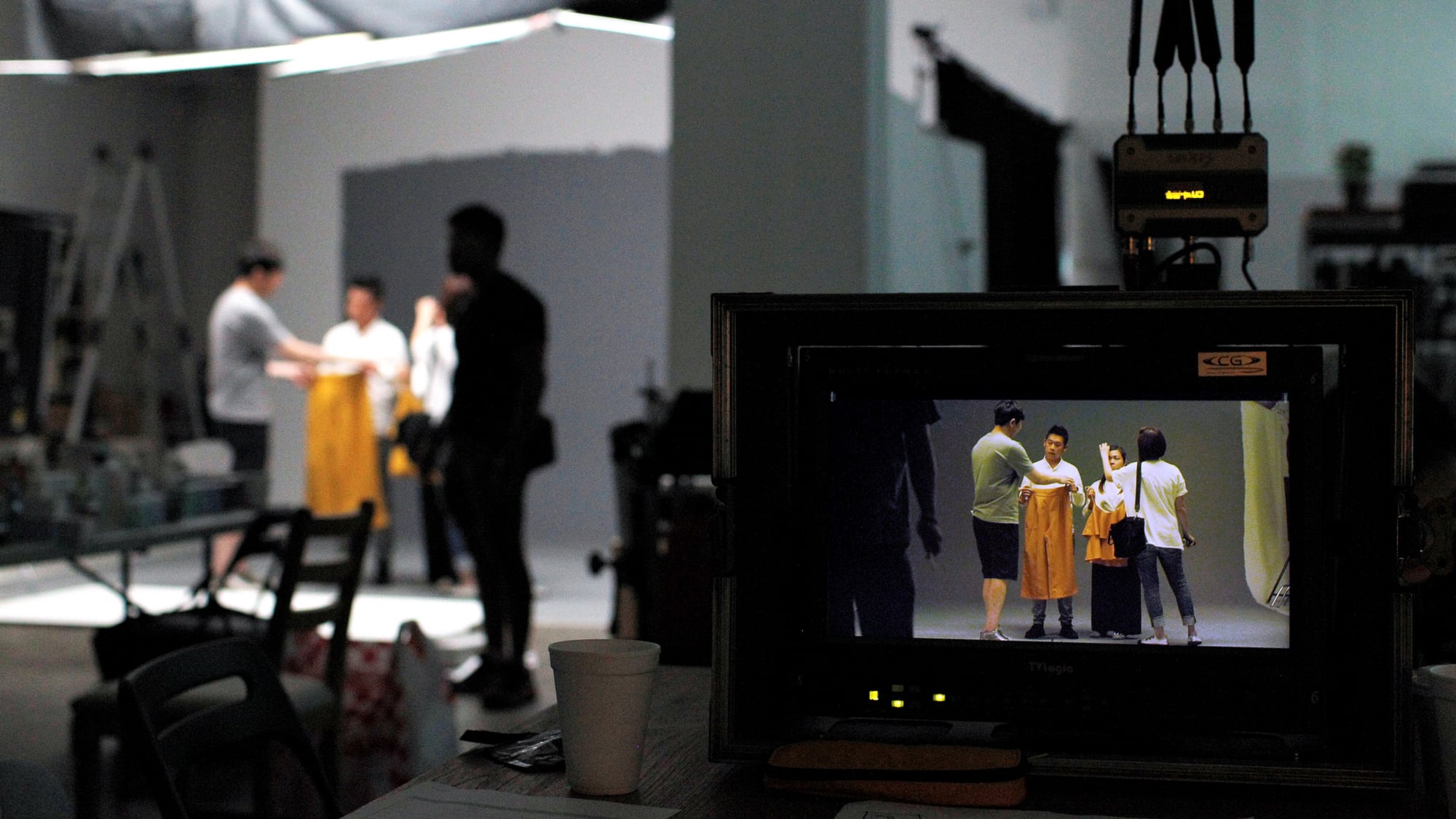The Seller Sessions are a series of interviews with merchants to better understand how they think, as well as the unique ups and downs they face.
Citylife Singapore is part of our campaign to showcase some of our Power Sellers. Get to know more about him and the other sellers at this link!
Citylife Singapore has yet to celebrate their first anniversary in e-commerce, but they sure can celebrate having an army of fans.
With some 21,000 followers on Qoo10, the Power Seller has made its mark on online shoppers as a go-to brand for trendy and functional home storage solutions.
We met up with e-commerce manager Shirley Chen at their brand-new premises in Tampines Industrial Crescent to learn about their journey so far as an online retailer, and how they are staying fresh in an industry as mundane as home plastics.
Chapter 1
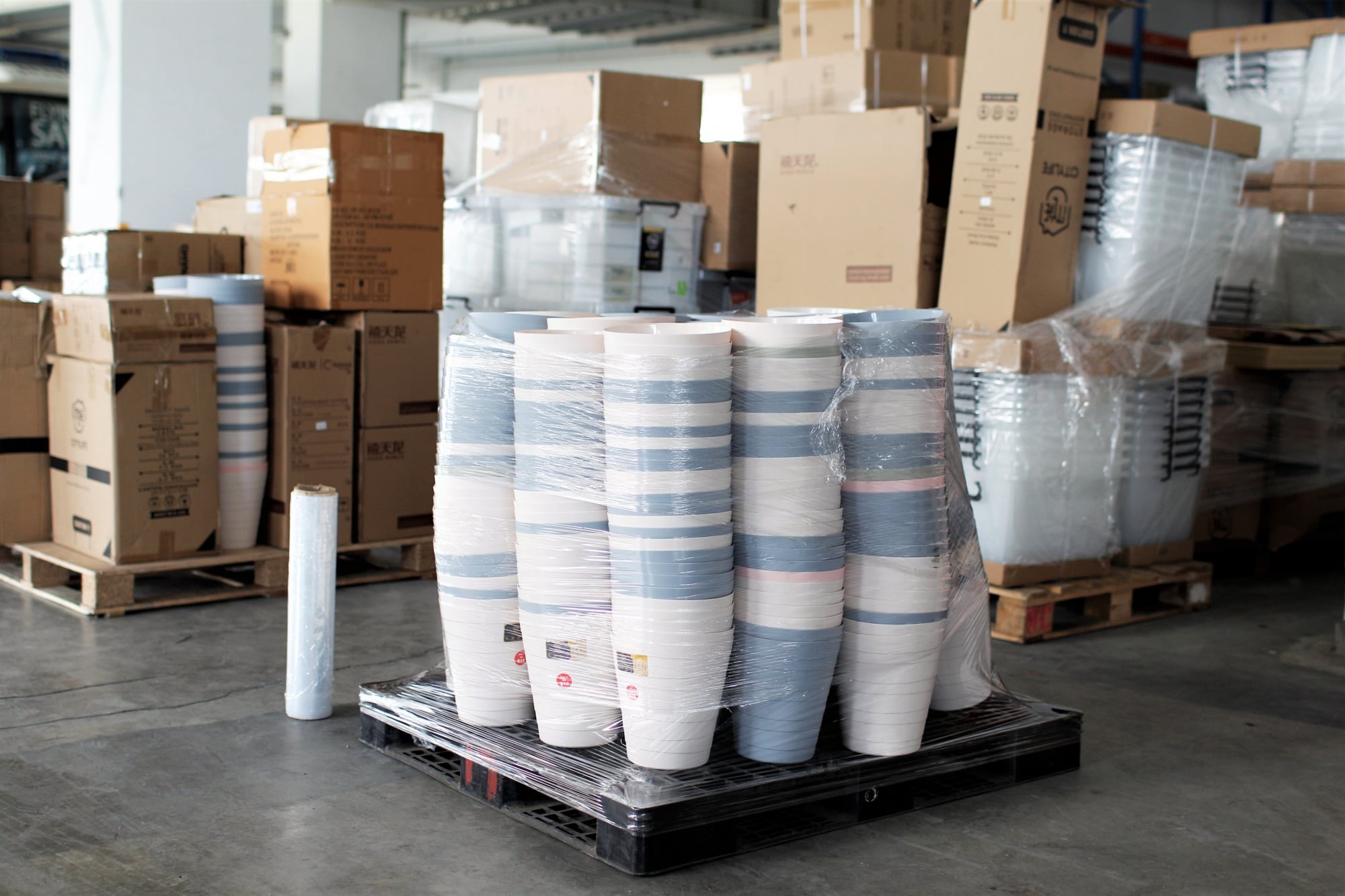
Citylife is the consumer-facing brand of Citylong Group, a Chinese plastic houseware company with a history that dates back to 1990. Since the turn of the millennium, Citylong has established itself as a leading player of home plastics in the Middle Kingdom, with four factories under their belt.
To capture the awakening Southeast Asian market, Citylong established a subsidiary in Singapore in 2012. Besides selling products wholesale to supermarkets in Singapore and around the region, the company also set up an e-commerce team in 2018 to meet consumers’ evolving preferences towards online shopping.
“When we first started out, our main focus was to get our brand name out there,” said Shirley, bringing us back to August 2018. “We know Qoo10 has a large market and large customer base, and that if we started out there, we would reach a lot of people.”
The Citylife team struck gold by incidentally joining Qoo10 just ahead of 9/9 – the first of many online shopping festivals in the year-end period. With some strategic introductory offers, their products proved an instant hit with Qoo10’s shoppers, gaining the store a significant follower count before the month had ended. This solid start created a strong momentum that carried through to subsequent shopping festivals – 10/10, 11/11, Black Friday, and 12/12 – firmly planting Citylife’s flag as a premier e-commerce merchant by the time the year came to a close.
Dancing in the dark
Being their first foray into e-commerce, Shirley readily shared that they relied heavily on Qoo10’s assistance in their first two months as a seller.
“We didn’t know how to set coupons, or promotions, nothing. We just put our items up and waited for it to sell,” she said with a chuckle. “And they told us that we couldn’t only do that. So there was a lot of hand holding at the start.”
She also recalled the nightmare of realising, 15 minutes before Singles’ Day commenced, that mechanics for the storewide 1-for-1 sale they had advertised had not been programmed into any of their 150 item listings. Luckily, they had previously decided to stay in office overnight, so that they could promptly respond to any customer queries. The team of two at that time frantically logged into the portal to add the necessary mechanics to all of their items, completing the task only at about 1 am.
“So I guess we missed out on the first hour of sales? But we fixed it, and it was better than discovering the mistake when we woke up at 8am,” she said with a visible air of relief.
That team of two has since expanded to six, a reflection of the work required to maintain a good presence online.
Growing up and out
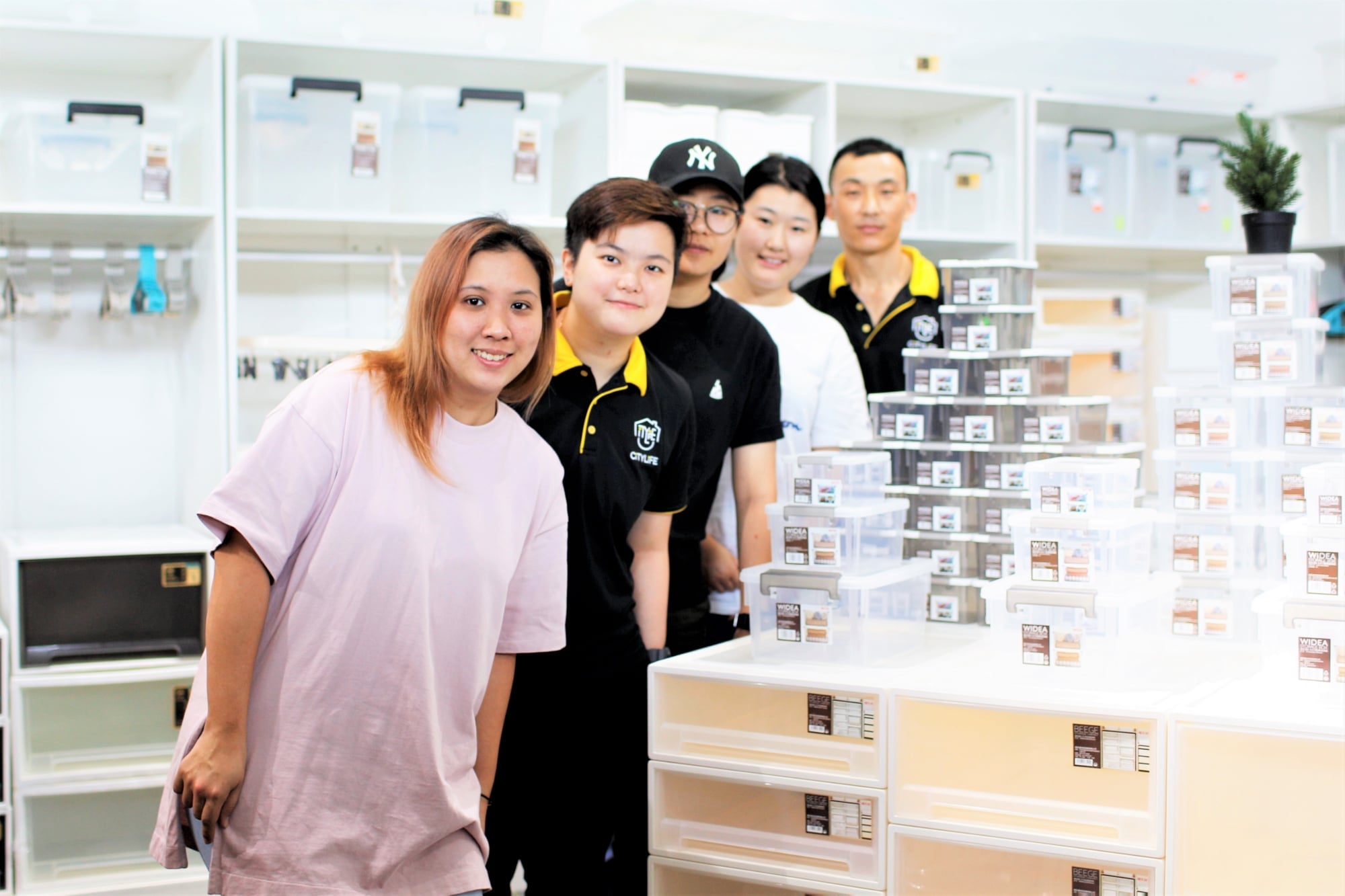
As Citylife eventually opened stores on other shopping sites, they quickly discovered unique pros and cons to each platform.
On Qoo10, for example, customer service can be a little tricky without the ability to issue individual discount codes or coupons. Shirley says that she usually explains this to customers, while offering to pair their main purchases with a free gift or two, to still add value to the transaction.
Qoo10’s biggest advantage, in Shirley’s eyes, is the ability to message all of Citylife’s followers at once, to share important announcements or details of the latest promotion.
Without a similar broadcast function, she and her team have resorted to individually messaging each and every follower Citylife has on other leading platforms, when they have news to share.
Trend-setting
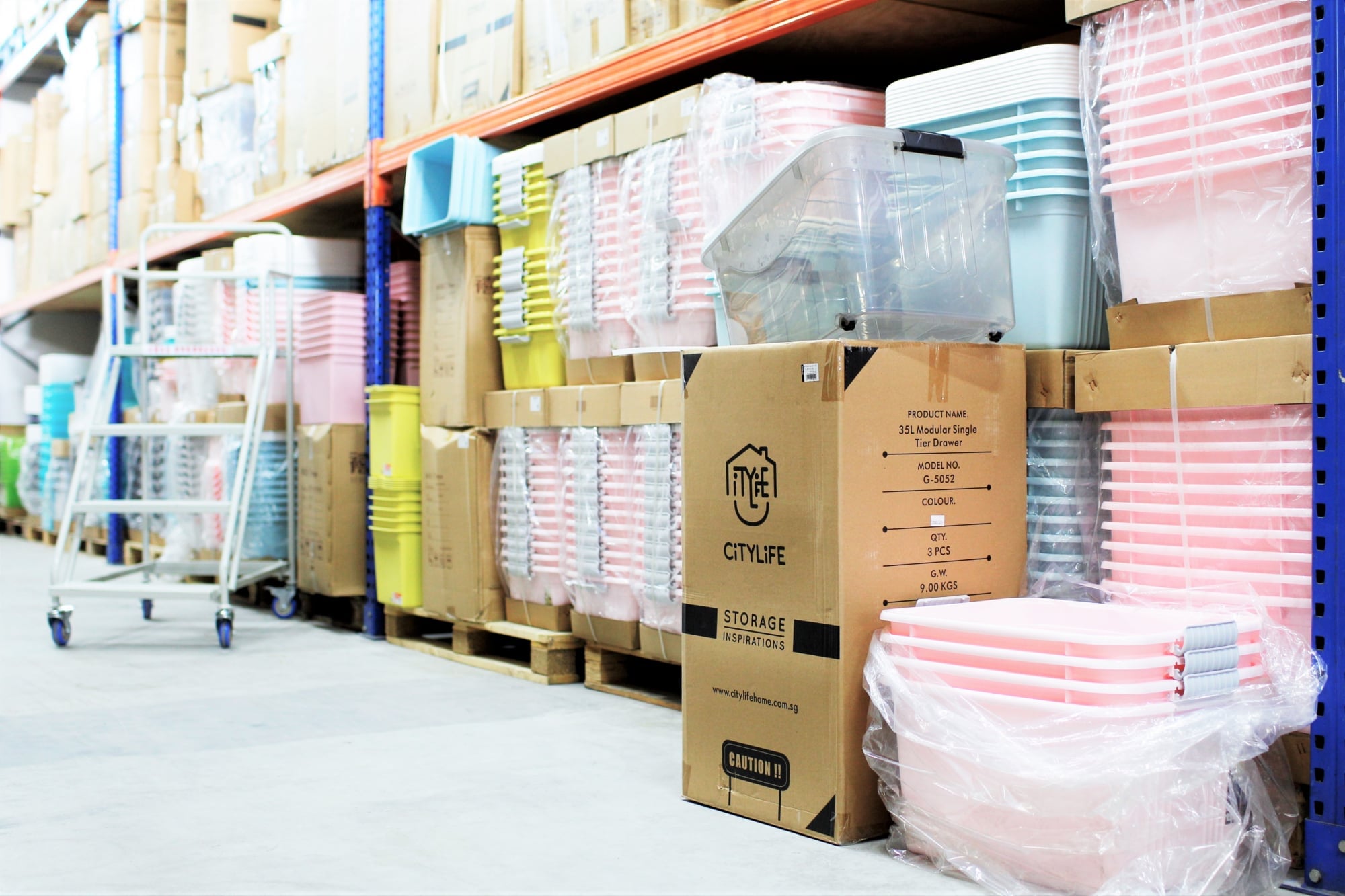
As the child company of a leading, trend-setting houseware manufacturer, Citylong Singapore’s relationship with their headquarters back in China is symbiotic. With a steady stream of new products constantly being tested and produced in China, the Singapore office has no shortage of new things to offer online customers, and gauge their appetite for it.
However, the team actively exerts a huge influence over the products they sell, due to significant differences between Singaporean and Chinese tastes. Where Chinese buyers prefer bright and striking colours, Singaporean buyers show a strong preference towards muted and pastel colors. Singaporeans also tend towards smaller capacities, since we generally have smaller homes and apartments than our Chinese peers.
Shirley and team are able to specify such tweaks to product models so that they can better suit the Singaporean market. Consistent customer requests are also passed along to their factory team to design and manufacture.
It has come to a point, she says, where her Chinese counterparts would occasionally take up an interest in the products made for Singapore, and put it out on the Chinese market, to reasonable levels of success.
Home plastics, then and now
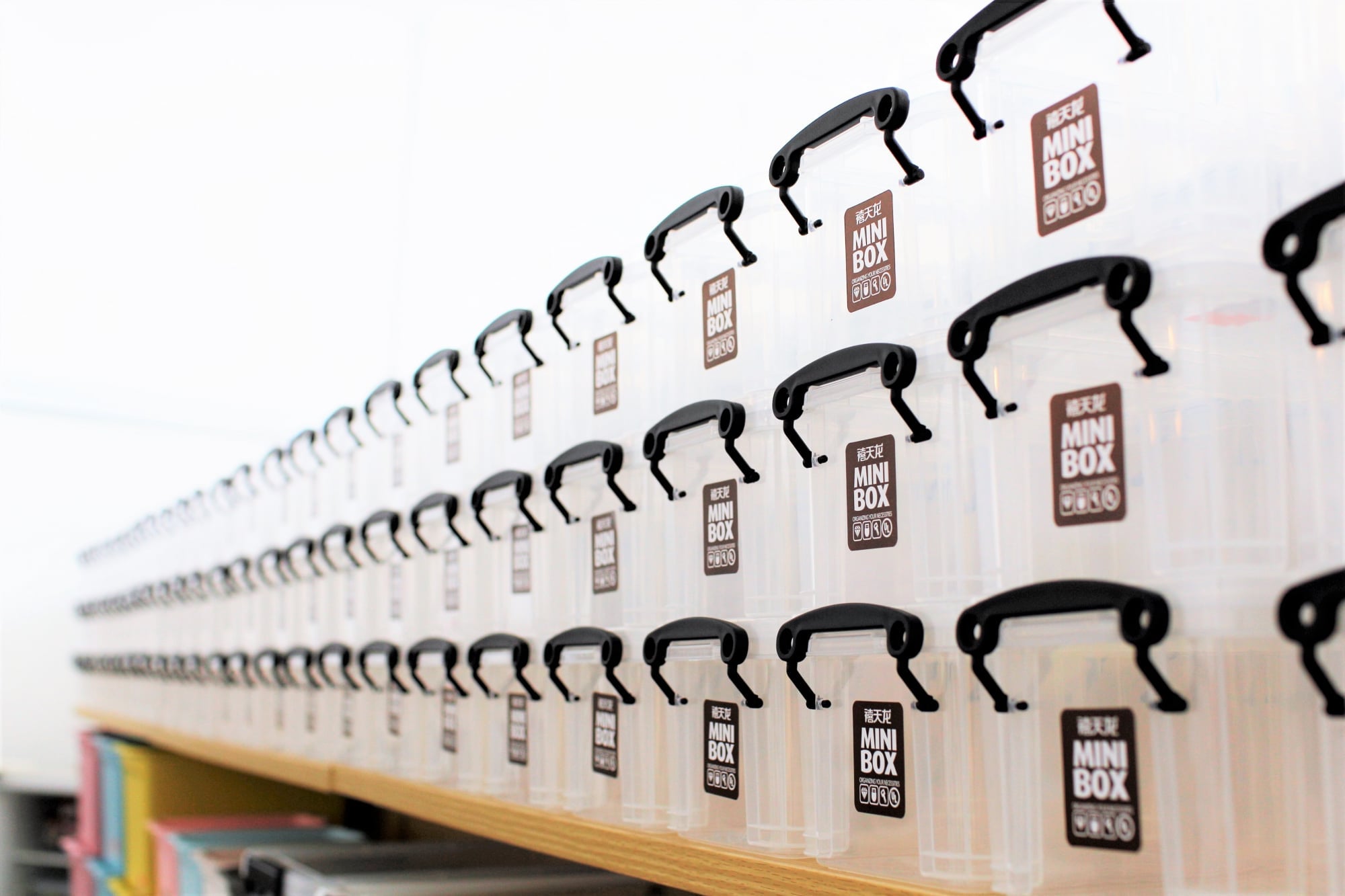
“When I was young, I don’t think people used plastic storage a lot,” said Shirley, recalling what the market for home plastics was like in her childhood. “Either that, or plastic storage was just for storage.”
Today, she says that customers consider a product’s aesthetics as much as its functionality.
“It’s no longer just a plastic box,” she says. “To them, it is something they are adding into their home.”
Shirley observes that Singapore’s younger generations go for simple, minimal designs and colours. She adds that a lot of Singaporeans don’t necessarily mind storage products that are smaller than the space they are trying to fill.
The 35-litre stackable boxes featured in the photo at the top of this post, for example, flew off the shelves faster than they had anticipated, with their stock of 2,000 units selling out in just two weeks.
“It may not hold large items, but our houses are so small these days. If it fits into smaller spaces, then I have more storage space, then I can store more items,” she reasons.
Stuff you don’t think about
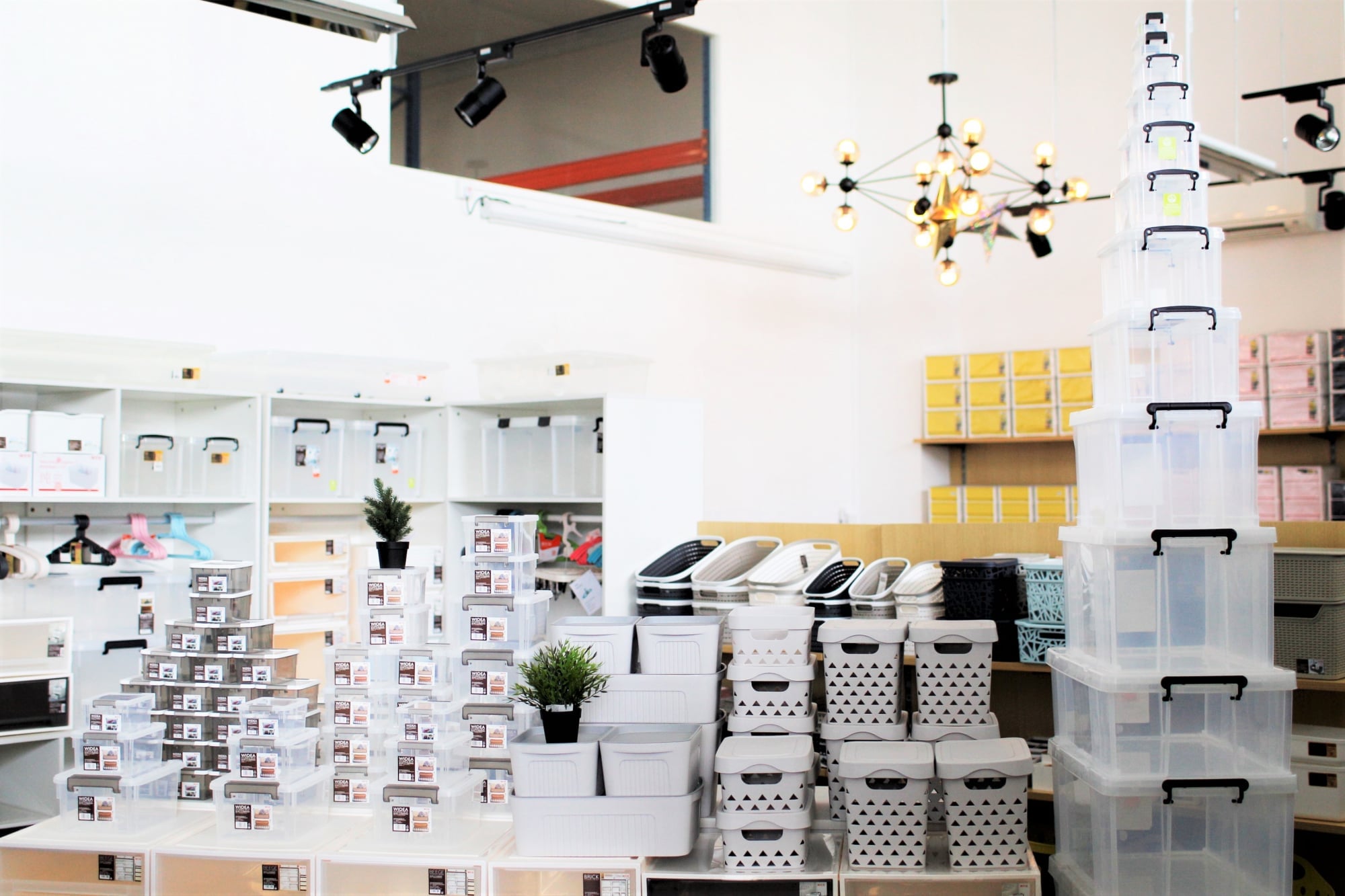
Shirley pointed out several things consumers don’t typically consider or take for granted, when planning for and dealing with houseware. Corners are often overlooked as spaces to fill things with, particularly in smaller spaces. Popular interior designs today include a lot of built-in furniture, especially wardrobes. While this maximises a home owner’s available space, while saving them the trouble of shopping for suitable furniture, Shirley finds a lot of people buying extra drawers to augment the available space and add compartments to these built-in fixtures. Consumers also tend not to think about mobility, especially for larger storage solutions. A 50-litre box may be easy to move around, but it wouldn’t be as easy once filled to the brim with books. Citylife makes a point of adding wheels to their larger-capacity products, to facilitate moving once it has been filled with items.
As for the future of home storage, it seems that it will always remain a necessity, in one form or the other. The variables in this equation presently revolve around the how. Will customers continue to prioritise aesthetics, or will they lean back towards functionality? Will they prefer larger or smaller spaces when fitting storage products into their home? Understanding the answers to these questions, and how they change over time, will determine how relevant Citylife continues to be to their huge target market. Regarding the industry itself, Shirley remains very optimistic.
“Everybody who has a home, needs to store something,” she concludes.


